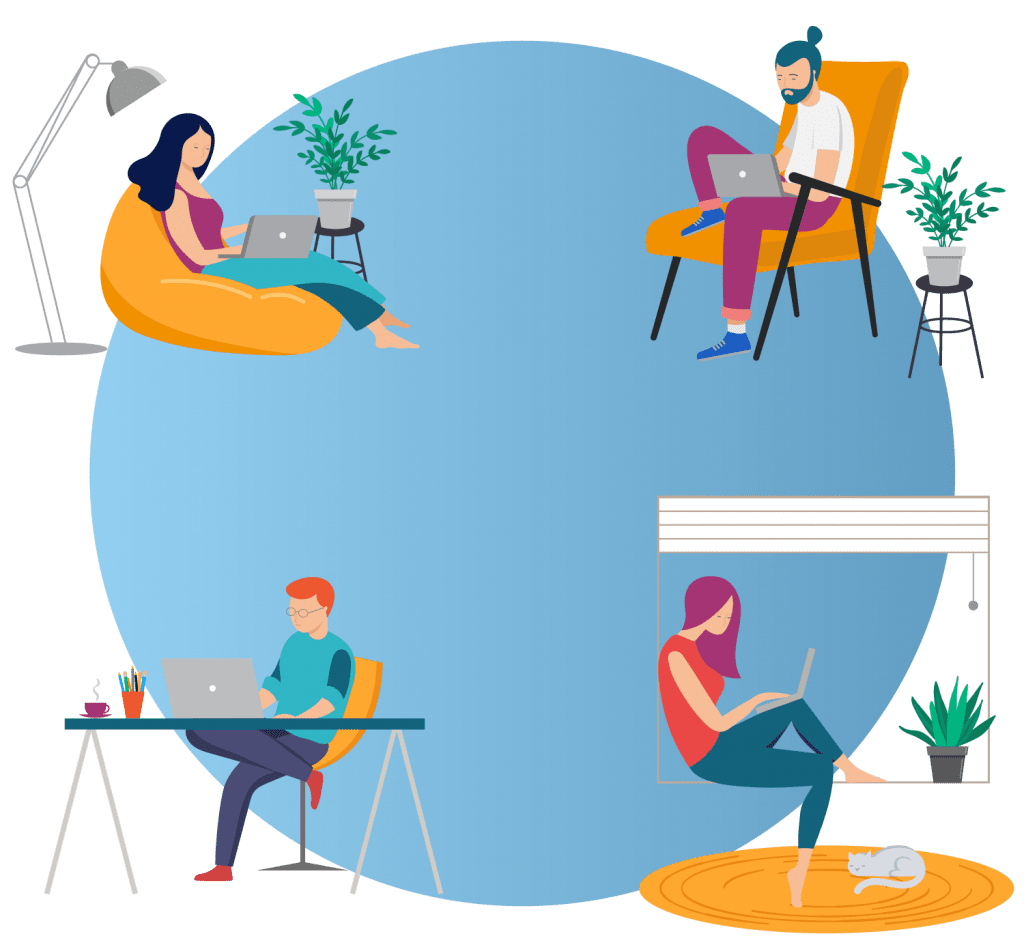Learner Success at Selmar
Our education offering is centred around care and compassion, two essential ingredients for the world we want to help create. As leaders in providing education around how to better care for each other, it’s our core mission to model to our learners the same care and compassion we hope they’ll apply when doing their important work.
So we have mapped a well-supported learning journey to ensure you leave our courses equipped with the knowledge and skills you need to have an impactful and meaningful career.
“Coming together is a beginning
Keeping together is progress. Working together is success.”
– Henry Ford
Our focus on learner success means that you, the learner, is at the centre of our teaching, and feel supported at every learning stage. From the moment you enrol to the time you graduate and join the workforce, and sometimes beyond, we aim to co-create a transformational learning experience.
Induction is the beginning of the collaborative process. Where we establish trust, and where you set your intentions for the rest of your course, and beyond your studies. As a newly–enrolled learner, you will be assigned a trainer, who will be your main point of contact throughout your studies with us.
Your trainer first gets in touch after you’ve enrolled and provides you an online literacy and numeracy assessment to determine course suitability. But don’t worry, your trainer is there for support during this process. Once this test is complete, your enrolment is finalised and you attend a one hour session in person or online that we book with you as part of the enrolment process. If you’re attending in person – don’t forget to bring your laptop!
Online support sessions
If you’re an online learner, you’ll have needed to complete the Welcome and Getting started sections in the portal prior. Or you may be a paper-based learner, so this won’t apply.
This session is where we’ll familiarise you with our learning methods, guide you through the online portal if you’re an online learner, cover what you can expect from assessments, the requirements for practical placement hours and introduce our community hubs. Basically it ensures you have everything you need to get off to a good start. It’s also an opportunity for you to ask anything that you’re unsure about – there is no wrong question.
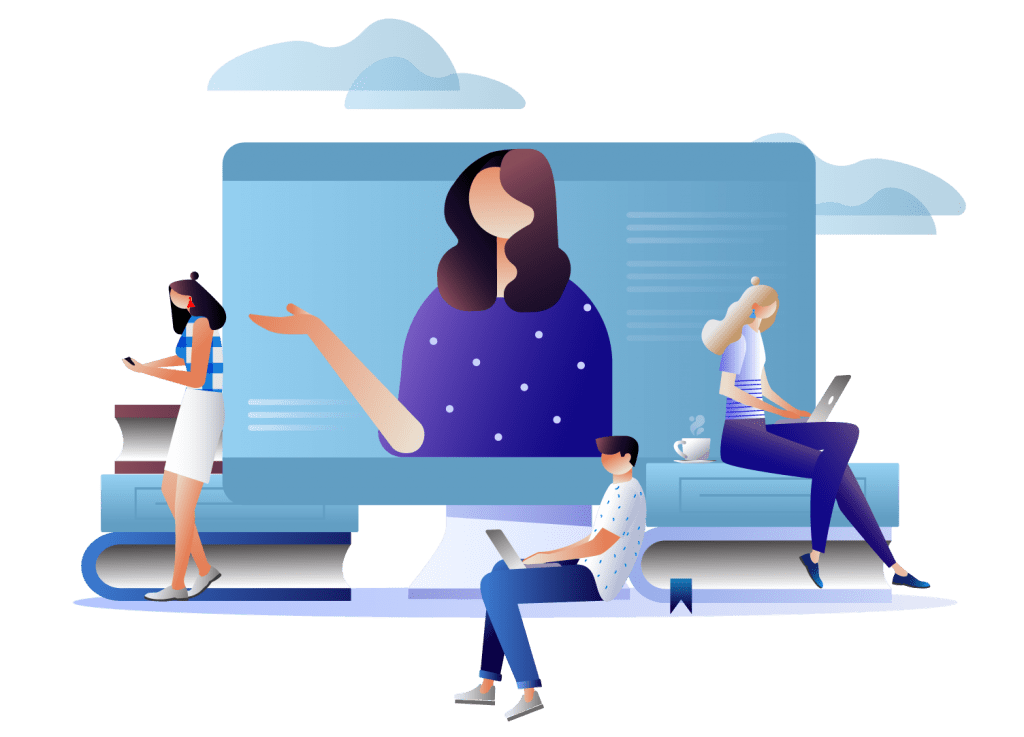
Online learning doesn’t mean you’re on your own
Flexibility is essential to the success of our learners. Often you may be pursuing your learning around existing commitments and life disruptions. Personal circumstances should never limit our achievements. Online study is one way to deliver flexible study, enabling you to study your own way, in your own time.
But studying online doesn’t mean you get access to an online portal, and then you’re left to manage all on your own. Our approach to online learning is to support you in every way we can. You have access to various supports throughout your learning, and benefit from individualised feedback and help from your dedicated trainer and our learner success advisors. Technical support is also there whenever you need it.
If you’re new to the online study space, or it’s been a while since you picked up the books, you needn’t be nervous. There are no expectations that you should already know how to master it. You’ll receive all the support you need to get your head around it and make your learning experience as easy as possible.
What does online learning look like day-to-day?
- All assessments are delivered through the user-friendly, easy-to-navigate online portal
- Submitting your assessments online also means that you can receive your assessment faster than in other study modes – so you can progress through the course quicker.
- We have a support team who can assist with technical issues. You can also contact your trainer for any course-related queries.
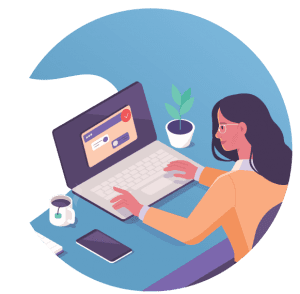
Learning success is a collaborative effort
Educators and learners are partners and collaborators with a shared goal: to impact the world around us through care and compassion. Research shows that education thrives where collaboration systems are well-established. To that end, we take a collaborative approach to our teaching.
Learning is never a solo journey at Selmar. We have a wide range of supports available to address a variety of individual needs. You will not encounter one-size-fits-all teaching methods.
Our Learner Success Team is another constant presence. One of our advisors gets in touch in the first couple of weeks of your enrolment to discuss your needs and what supports you may need. They then check in with you weekly or fortnightly. You’ll have the chance to discuss your needs and challenges as they arise, and troubleshoot them before they could become a problem.
All our support advisors are equity champions – their mission is to help you negotiate any obstacles to learning you might encounter.
Our approach to learning enables us to treat each learner as an individual, with different needs and circumstances. Our aim is for every learner to find learning methods that work for them, and gain the knowledge and skills to impact the workplaces they go into, and by extension, the world around them.
Types of support you might consider as a learner
- Language support if English is your second language
- Literacy and numeracy support
- Study tips
- Help with your resume
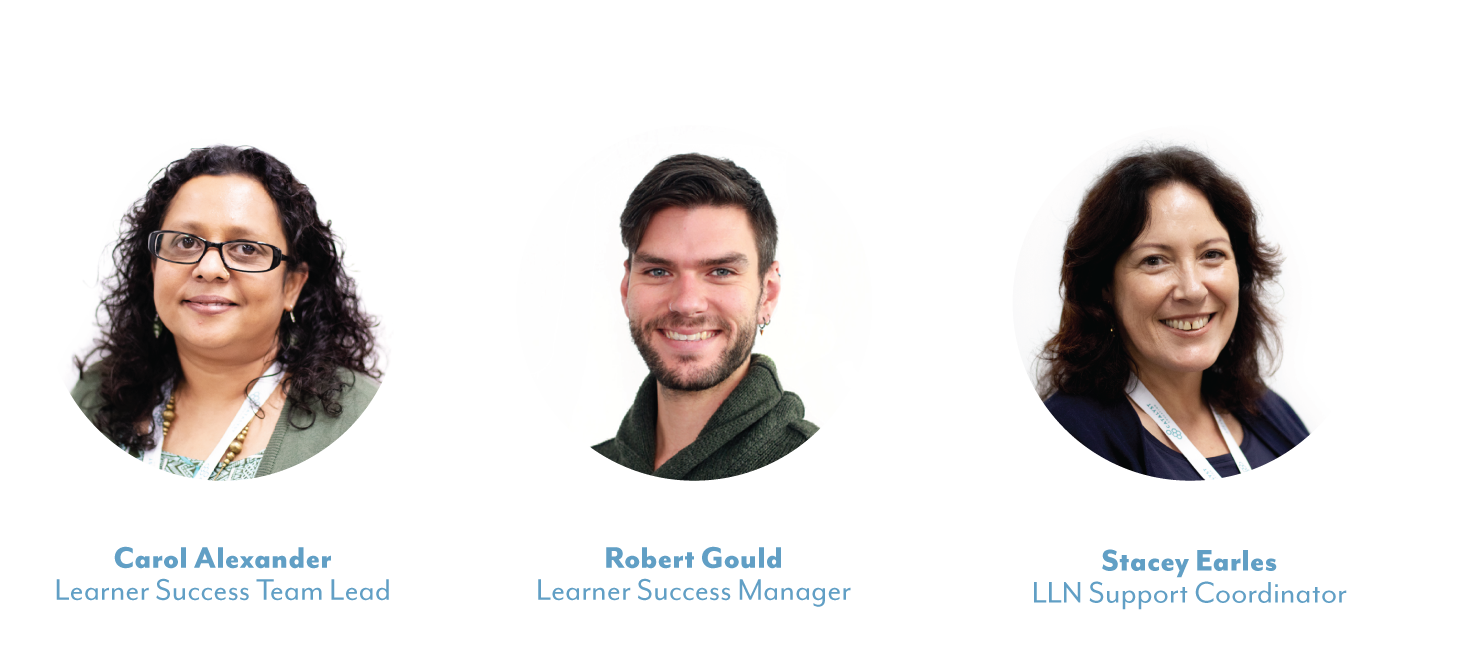
Sector relevant, human-centred learning, supported by empathetic trainers
We focus on education that aims to shift the culture. The technical skills and knowledge we teach are consistent with the offering across the sector. But we know that any job that involves care is about much more than technical skills.
As an education provider, Selmar is led by a commitment to compassion and care. Our aim and purpose is to create a more empathetic and more compassionate workforce. One of the ways we do that is through modelling. Every single person you interact with as a learner is skilled in compassionate communication. Our human-centred approach to education means that empathy for our learners is key: your wellbeing, curiosity and care in relation to your studies comes first.
“As a classroom community, our capacity to generate excitement is deeply affected by our interest in one another, in hearing one another’s voices, in recognising one another’s presence.”
― Bell Hooks, Teaching To Transgress: Education as the Practice of Freedom
Through regular discussions with the sectors we serve, we’ve found that transferable skills like empathy, communication, creative thinking, adaptability are essential in these workplaces. So we use a Design Thinking approach to deliberately bring compassionate leadership and reflective practice into your learning experience. We aim to challenge and support you in meaningful ways, so that your learning experience is impactful.
We’ve created a framework of transferable skills we want our learners to leave our courses with. At the end of your study, you’ll get a qualification in early childhood or aged care or disability. But you’ll also get a portfolio of transferable skills that you’ll be graded on, so you can easily demonstrate what you’re already really good at, and what you’re still working on.
Design thinking approach
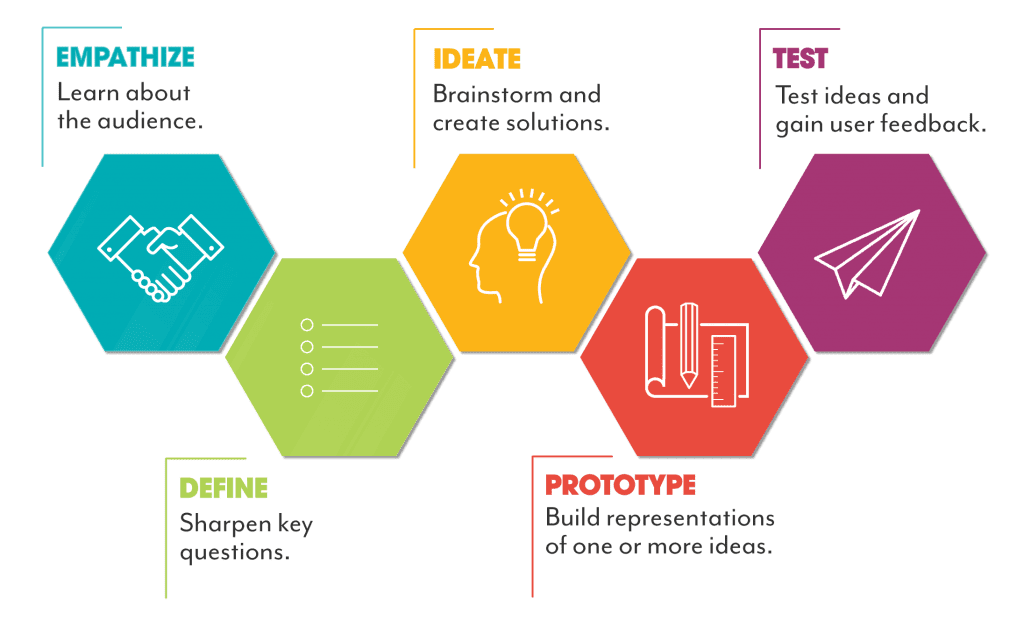
Our aim is to help you develop fruitful collaborations, and a solid foundation for future professional relationships. That’s why you are assigned a trainer that will closely support you from the beginning to the very end of your learning experience with us.
All our trainers have real-life experience in relevant sectors and workplaces, so they closely understand it, as well as the type of challenges you might come across. Through them, your connection to real-life workplaces starts during the learning stage.
Learning thrives in community
Beyond individual support, we want to ensure that you join a community of caring and compassionate professionals. Our learner community hubs are where you can actively engage with trainers and peers, asking questions, and finding solutions together. These are online group webinar sessions with a trainer and learners studying the same course as you (the numbers of attendees for each session are capped so you can create meaningful connections and get to have a say).
How can attending the learner community hubs help you?
- A great way to connect with and hear from other learners
- Learn from the challenges that other learners bring forward
- Hear from a specialist trainer on a focused section of your course
- Gain further understanding of your learning and ask questions to help your study and assessment tasks.
This community-oriented approach ties into our human-centred approach to learning, and it’s key to developing the soft skills central to a rewarding and successful career in care: problem-solving, managing emotions, and verbalising and discussing ideas.
You’ll strengthen your skills with practical placement
Placement is a key part of our courses. It is where you solidify and get to practice the theory you’ve been learning, and where you can reflect on the best way to apply those learnings. All your regular supports are available through this important learning stage, and you’ll continue to connect with your trainer regularly.
Your practical placement coordinator is also there to support your success during the placement.

We can help organise your placement
If you need help with finding a centre to complete your practical placement, we can help. We have a large early learning service network and can help you organise a placement service to work for you. You’ll be doing a lot of tasks during your placement that will be a reflection of the human-centered skills you’re strengthening.
By the end of your placement, you’ll have had an opportunity to reflect on how you’re growing as a person, and who you are becoming as a human being as a result of the transformational learning and work you are doing. They are called transferable skills because they will impact all aspects of your life positively.
Some learners also find employment through their time in placement, so it’s also a great practical interview opportunity.
Our placements are organised in blocks throughout the course, so you can apply the knowledge as you’re learning it, and better retain it this way.
One way to embed and strengthen your transferable skills is through a practical placement reflective journal, which you’ll be taking with you every day, and is instrumental in helping you hone in those soft skills that are key to the work.
We’ve also developed a pre-placement live information session, where you can get an overview of what to expect during your placement, and can ask any questions. That way you can head into your placement confident and open to the experience.
Our aim is to support your learning
Everything we do, through our teaching and the sector we support, is about bringing compassion and care to the forefront of society. We are committed to a human-centred approach to teaching and learning because we know it empowers our learners to uncover their true potential in their careers and their lives. Supporting you is how we start to make a difference, so that you can go on and make a difference through your work.
